Is Cereal Bad for You? What You Need to Know
Cereals are a popular breakfast choice, but is cereal bad for you?
Yes, cereal is bad for you, including whole grain cereals, which often contain added sugar, artificial coloring, and residual herbicides associated with an increased risk of chronic diseases.
Discover why cereal is unhealthy and learn how to choose a nutritious alternative breakfast option.
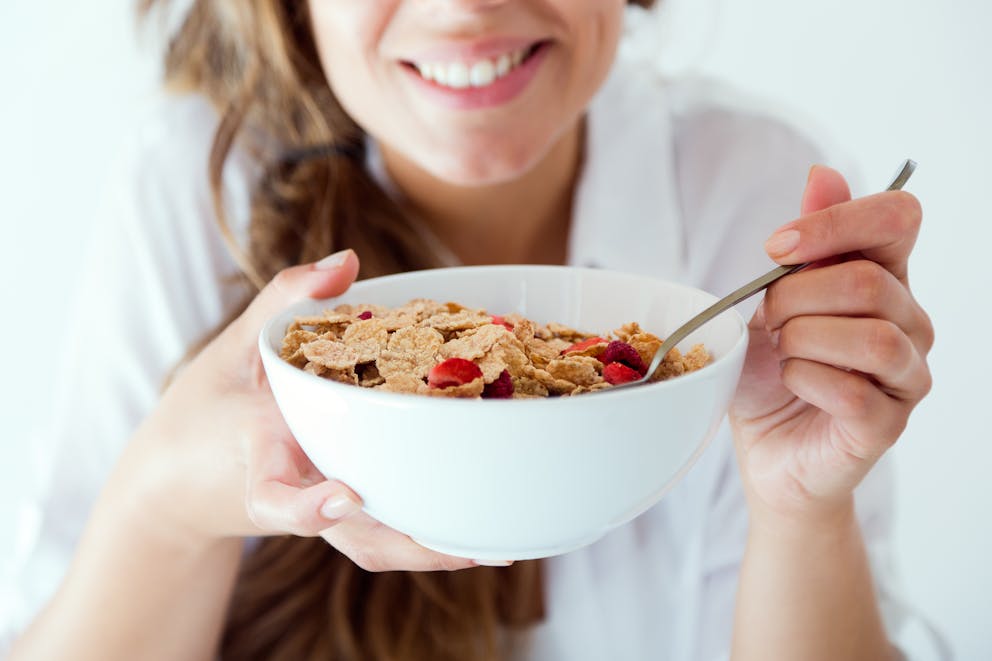
Is cereal healthy or not?
Cereals are marketed as a healthy breakfast option. However, they’re ultra-processed foods that provide limited nutrition.
Here are a few reasons why cereals aren’t considered a healthy choice.
Added sugar
Despite many products being marketed as healthy cereal options, breakfast cereals are often high in sugar.
The majority of cereals contain around four grams (one teaspoon) of added sugar per serving, and certain sugary cereal brands contain as much as 12 grams (three teaspoons) of added sugar per cup.
Most adults and children eat between three and four cups of cereal in a single sitting, significantly surpassing the recommended daily sugar limit set by the American Heart Association (AHA).
According to the AHA, high sugar consumption has been linked to obesity, diabetes, high blood pressure, and heart disease.
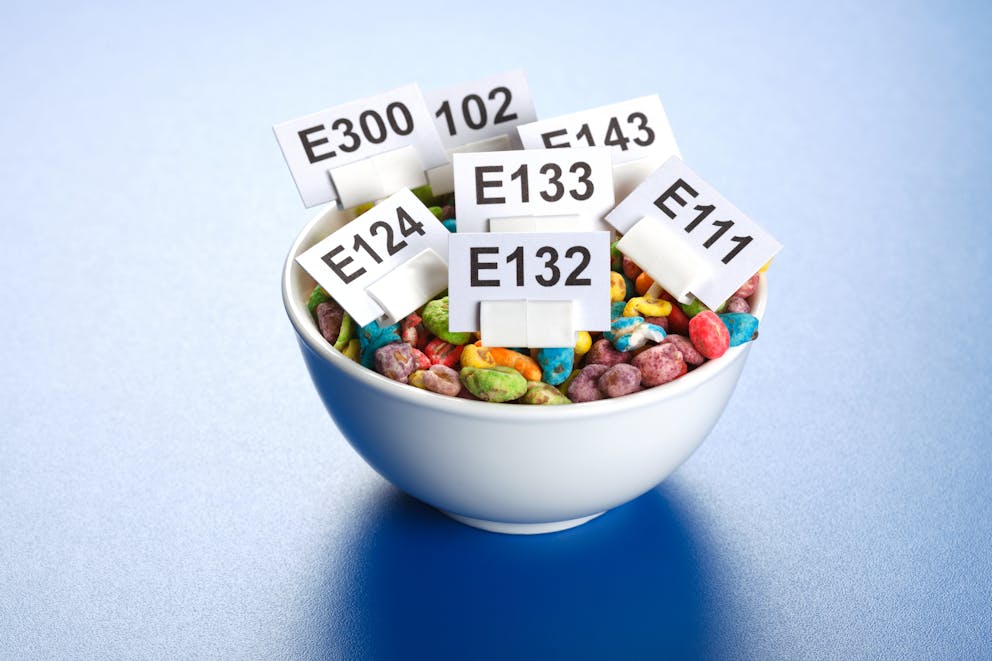
Artificial dyes and flavors
Many breakfast cereals contain artificial dyes and flavors made from petroleum, including Red #40, Blue #1, and Yellow #6, which are linked to hyperactivity in children.
A study published in the Journal of the American Academy of Child and Adolescent Psychiatry found that eliminating artificial colors from diet improved symptoms in children with attention deficit hyperactivity disorder (ADHD).
Preservatives
Preservatives, including butylated hydroxyanisole (BHA) and butylated hydroxytoluene (BHT), are often added to breakfast cereals to extend their shelf life and maintain color, flavor, and freshness. However, they’re associated with various health risks.
“BHT and BHA are carcinogenic chemical preservatives that can affect your endocrine and reproductive systems,” explains Dr. Berg.
These preservatives act like estrogen in the body, which can interfere with hormone balance and is linked to weight gain and fertility issues.
Watch the video below to learn more about the downsides of eating cereals.
You May NEVER Eat Cereal Again After Watching This
The truth about cereal
Marketing plays a significant role in how cereal is perceived, and most brand labels make considerable efforts to suggest their cereals are healthy.
However, the nutrition facts on the cereal box will likely reveal added sugar content, synthetic vitamins and minerals, and other ultra-processed ingredients, which can lead to weight gain, cancer, and cardiovascular disease.
Here’s the truth about how cereal is made and why the claims that cereals are good for you are false.
How cereal is made
Cereals undergo extensive refining, which removes a significant portion of their natural nutrients, including essential B vitamins.
To compensate for this loss, breakfast cereals are then fortified with synthetic vitamins, which are less effective at promoting healthy nutrient stores.
Here’s how cereals are typically produced:
The grains are milled into flour and cooked.
Ingredients such as refined sugar, food dyes, water, or artificial flavors are added to the wheat flour.
The mixture undergoes a process known as exertion, which involves heating at high temperatures, followed by molding and shaping into loops, squares, or circles, depending on the specific brand.
Once dried, most cereals are coated in a sugary frosting, flaked, or puffed.
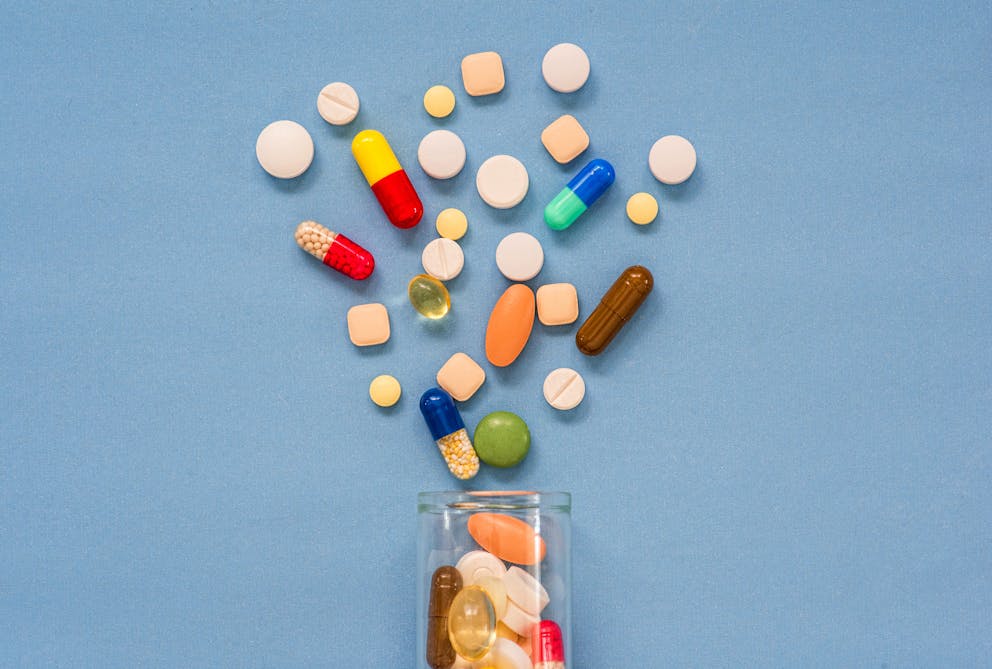
Misleading health claims
Various brands attach health claims to their cereals, stating their products are nutrient-dense and heart-healthy.
However, cereals that claim to be nutrient-dense are typically enriched with synthetic vitamins, including riboflavin, niacin, folic acid, and iron, which are difficult to absorb and often derived from petroleum byproducts.
Synthetic vitamins aren’t well utilized in the body and have been linked to an increased risk of cancer and other health problems.
Many companies label their whole grain products as heart-healthy and suggest cereals help reduce cholesterol and prevent heart disease.
Unfortunately, many of these cereals contain large amounts of added sugars. Excessive sugar and carbohydrate intake can lead to elevated levels of low-density lipoprotein LDL, the bad cholesterol linked to atherosclerosis, heart attacks, and stroke.

The health risks of eating cereal every day
Most breakfast cereals are high on the glycemic index, including whole grains, refined grains, and added sugar. This indicates they quickly spike blood sugar levels and insulin.
Fluctuations in blood sugar can worsen mood disorders, including anxiety and depression. Elevated blood sugar also is a main cause of obesity, fatty liver disease, and cholesterol imbalances associated with high blood pressure, diabetes, and other chronic diseases.
Whole grains naturally contain phytic acid, an anti-nutrient that inhibits the absorption of zinc, calcium, iron, and magnesium.
This explains why regularly eating cereal can impact immune function and lead to fatigue, anemia, heart arrhythmias, and other symptoms.
High-carb consumption has also been linked to inflammation in the gastrointestinal tract. Gluten, the main protein in grains, can trigger immune responses that can damage the intestinal lining, which may lead to a leaky gut, gas, and bloating.
Gluten intolerance may also contribute to hypothyroidism and autoimmune diseases, including Hashimoto’s disease.
Additionally, cereal grains are primarily produced with genetically modified organisms (GMOs), sometimes labeled as bioengineered ingredients by cereal companies.
GMO crops are engineered to tolerate glyphosate, an herbicide linked to cancer, liver and kidney damage, and reproductive issues.
A study published in Food Chemistry found that glyphosate was present in a variety of oat-based cereals and breakfast bars.
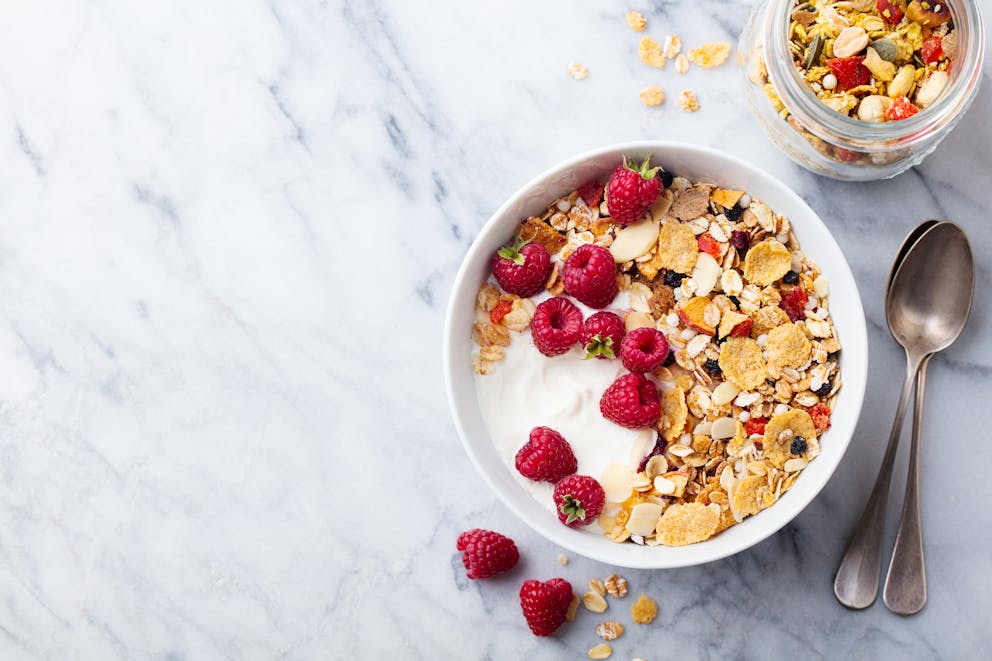
Does “organic” make it okay?
While organic products are healthier and more strictly regulated, even certified organic cereals are considered processed junk food.
A diet that’s high in these types of prepackaged foods is void of many important nutrients. This can cause nutrient deficiencies linked to mood disorders and chronic illnesses, including diabetes and heart disease.
Organic cereals are also often packed with added sugars, significantly spiking blood sugar levels and insulin, which increases the risk of weight gain, fatigue, and poor cognitive function.
Additionally, though organic manufacturers and farms are prohibited from using synthetic herbicides, they are still used for common non-GMO cereals and crops, including wheat, barley, and oats.
This means that cereals labeled non-GMO could still contain residual glyphosate or other chemicals that may negatively impact health.

How to choose a nutritious breakfast
An unprocessed, low-carb breakfast high in fat and protein can satiate hunger, help prevent blood sugar spikes, and provide sustained energy throughout the morning compared to cereal and milk.
Whole eggs are a popular breakfast food rich in healthy fats, protein, and nutrients, including B vitamins, vitamins A and D, and iron.
These vitamins are commonly added to cereals in their synthetic form. In contrast, food-derived nutrients are more bioavailable for absorption, which can contribute to general health.
A study published in Nutrients found that “The addition of eggs at breakfast can contribute to nutrient intakes and overall dietary adequacy.”
Eggs can also be combined with other proteins, vegetables, and healthy fats, including shredded beef, pork, leafy greens, tomatoes, and avocados for a delicious and filling breakfast.
Eggs Benedict combines poached eggs with a savory hollandaise sauce. Those on a low-carb diet can substitute carb-rich muffins with a coconut flour biscuit.
Bacon and egg fat bombs are another satisfying, nutrient-dense, and simple breakfast-on-the-go recipe made with bacon, eggs, and mayonnaise.
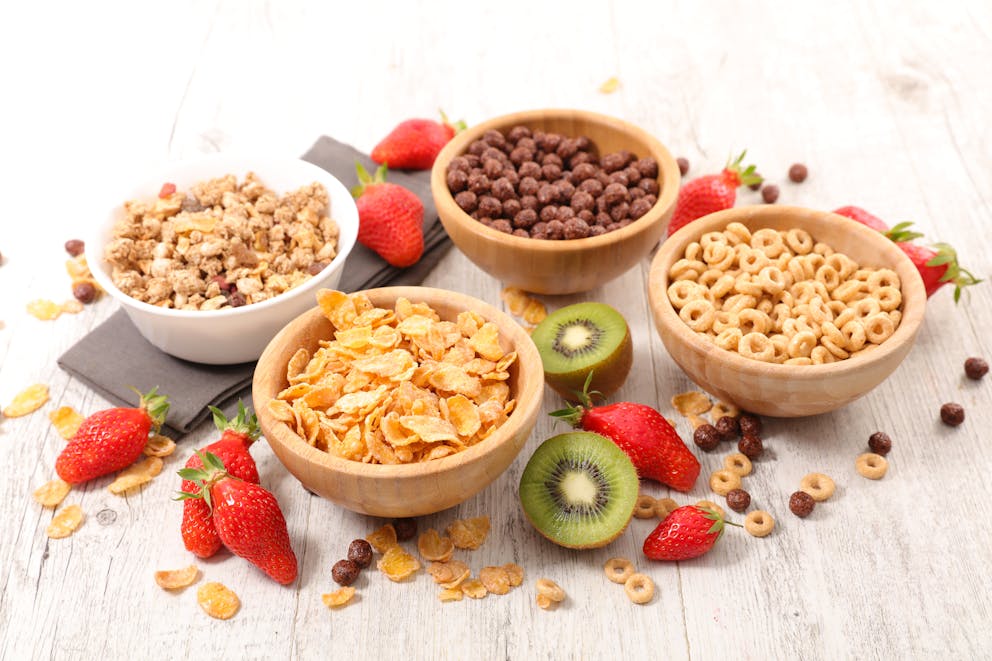
Key takeaways
Is cereal bad for you? Yes, cereal is considered unhealthy, ultra-processed junk food, even if labeled as organic or non-GMO.
Most cereals contain added sugars, artificial dyes and flavors, and preservatives and are enriched with synthetic vitamins that are poorly absorbed and less effective.
Instead of sugary cereals, opt for low-carb and whole food-based breakfast options such as eggs, beef, avocados, and salad for sustained energy and enhanced nutrition.
FAQ
1. Is cereal unhealthy?
Yes, cereal is considered unhealthy as it typically contains added sugars, artificial dyes and flavors, and preservatives linked to hyperactivity in children, hormonal imbalance, and cancer.
Even organic cereals are ultra-processed and often packed with sugar, which will cause blood sugar spikes linked to weight gain and obesity.
2. Is cereal keto-friendly?
No, cereal isn’t keto-friendly because it’s high in carbohydrates and added sugars, quickly raising blood sugar and insulin levels, which interferes with ketosis and fat-burning.
3. Are breakfast cereal bars healthy?
No, cereal bars aren’t healthy because they often contain several grams of added sugar and processed grains, which spike blood glucose and may lead to energy crashes and more serious health problems, including insulin resistance and heart disease.
Studies have also found that many cereal bars contain traces of glyphosate, a carcinogenic herbicide linked to kidney and liver damage.
4. Is it bad to eat cereal every day?
Yes. Eating cereal daily can cause consistently elevated blood sugar levels, which may lead to weight gain, mood disorders, fatigue, and poor cognitive functions. Excessive cereal consumption can also contribute to diabetes and heart disease.
5. What is the unhealthiest cereal?
The unhealthiest breakfast cereals are typically marketed toward children and include brands such as Fruity Pebbles, Lucky Charms, and Cinnamon Toast Crunch.
6. Is cereal considered junk food?
Yes, cereal is considered junk food because it’s ultra-processed and often contains added sugars, artificial colors, flavorings, and little nutritional value despite being fortified with synthetic vitamins.
7. What happens when you eat too much cereal?
Cereal is high on the glycemic index, meaning that it spikes blood sugar levels rapidly. This can trigger blood sugar fluctuations linked to fatigue, intense cravings, and mood swings.
Sources
Previous blog
Are Olives Keto-Friendly?Next blog
Is Ham Keto-Friendly?Tags

Popular
08/31/2023
13.5K views
08/31/2023
15.6K views
08/31/2023
154.4K views
03/18/2024
11/21/2022




